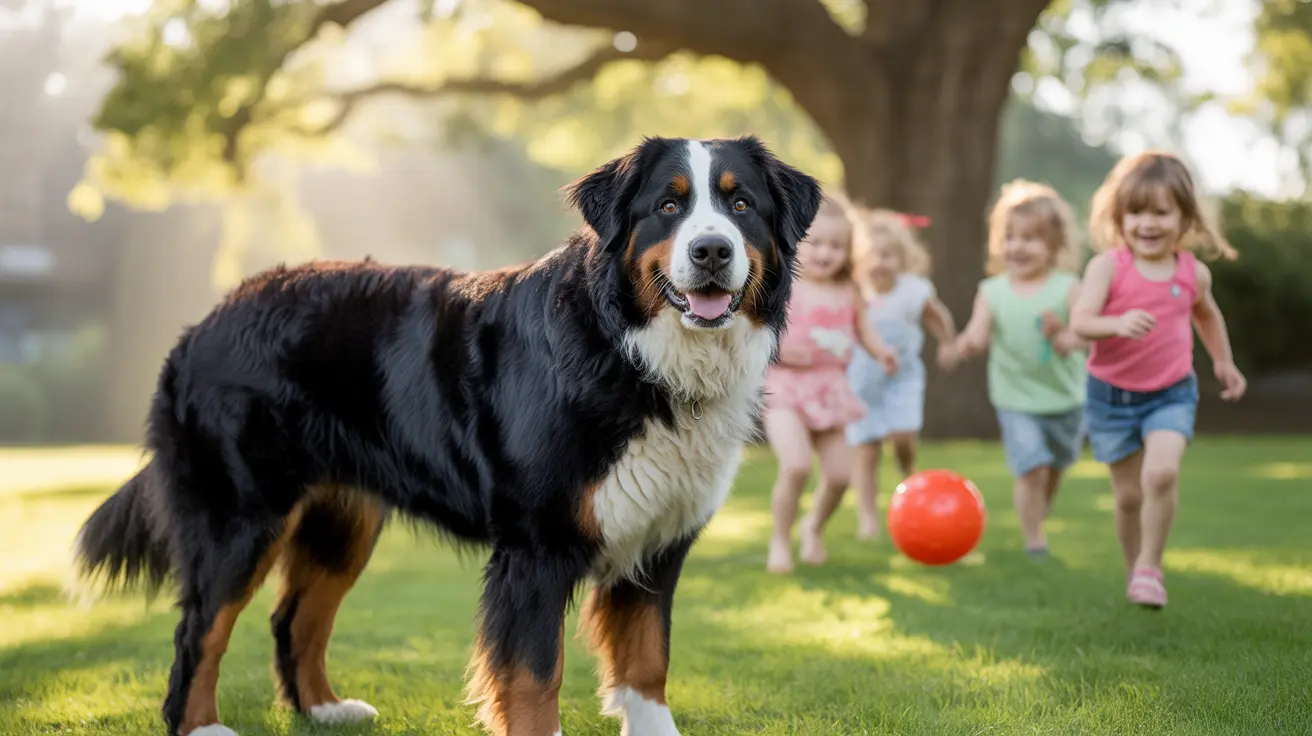Bernese Mountain Dogs are renowned for their remarkable blend of protective instincts and gentle temperament. These majestic Swiss breeds have evolved from working dogs in the Alps to become beloved family guardians, combining vigilance with an exceptionally sweet disposition. For families wondering about their protective capabilities, it's essential to understand how these gentle giants approach their watchdog duties.
In this comprehensive guide, we'll explore the protective nature of Bernese Mountain Dogs, their historical background, and what makes them unique among protective breeds. We'll also discuss how their guardian instincts manifest in family settings and the best ways to nurture these natural tendencies.
Natural Protective Instincts of Bernese Mountain Dogs
Bernese Mountain Dogs possess strong natural protective instincts that stem from their heritage as farm guardians in Switzerland. These dogs demonstrate their protective nature primarily through alertness and positioning themselves between potential threats and their family members. Rather than displaying aggressive behavior, they rely on their impressive size and deep, resonant bark to deter unwanted visitors.
Their protective behavior typically manifests as:
- Vigilant monitoring of their environment
- Strategic positioning near family members
- Alert barking when detecting unusual activity
- Gentle supervision of children during play
Historical Origins and Working Heritage
The protective instincts of Bernese Mountain Dogs are deeply rooted in their working history. Originally bred in the Swiss Alps, these dogs were tasked with multiple responsibilities, including guarding farms, pulling carts, and protecting livestock from predators. This diverse working background has shaped their current protective characteristics, creating a dog that's both vigilant and discerning.
Protective Behavior Around Family Members
When it comes to family protection, Bernese Mountain Dogs excel in providing gentle guardianship. They are particularly attentive to children, often positioning themselves nearby during play activities. Their protective nature is characterized by patience and careful observation rather than aggressive responses.
These dogs demonstrate their protective instincts through:
- Maintaining close proximity to family members
- Showing increased alertness when strangers approach
- Gentle supervision of children's activities
- Calm but watchful presence during family gatherings
Training and Socialization for Balanced Protection
Early socialization and consistent training are crucial for developing well-balanced protective behaviors in Bernese Mountain Dogs. These intelligent dogs respond well to positive reinforcement techniques and need exposure to various situations, people, and environments during their formative months.
Key training aspects include:
- Early socialization with different people and situations
- Positive reinforcement of calm, controlled responses
- Clear boundaries for protective behaviors
- Consistent training in basic obedience
Watchdog vs. Guard Dog: Understanding the Difference
It's important to note that Bernese Mountain Dogs are natural watchdogs rather than aggressive guard dogs. They excel at alerting their families to potential dangers but are not typically confrontational. Their imposing size and deep bark serve as effective deterrents without the need for aggressive behavior.
Frequently Asked Questions
How protective are Bernese Mountain Dogs toward their family and home?
Bernese Mountain Dogs are naturally protective of their family and home, primarily expressing this through vigilant observation and alerting behavior rather than aggression. They maintain a watchful presence and will bark to alert their family to unusual activities or potential threats.
Do Bernese Mountain Dogs tend to be aggressive or more gentle when protecting their owners?
These dogs typically display gentle protective behaviors, rarely showing aggression unless faced with a genuine threat. They prefer to deter potential threats through their impressive size and warning barks rather than physical confrontation.
What kind of training and socialization helps Bernese Mountain Dogs develop balanced protective instincts?
Early socialization with various people, animals, and environments, combined with positive reinforcement training, helps develop balanced protective instincts. Consistent obedience training and clear boundaries are essential for proper development.
Are Bernese Mountain Dogs effective watchdogs compared to traditional guard dog breeds?
While they may not be as aggressive as traditional guard dogs, Bernese Mountain Dogs are excellent watchdogs. Their size, deep bark, and natural alertness make them effective deterrents, while maintaining a gentler family-friendly disposition.
How do Bernese Mountain Dogs behave around children while showing protective tendencies?
Bernese Mountain Dogs are exceptionally gentle with children while maintaining their protective nature. They often position themselves near children during play, providing careful supervision without interference unless they perceive a genuine threat.






